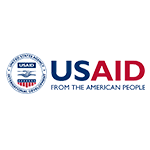Promoting Innovation in the Sahel Region Through Capacity Building in the Public Health Sector
HIGHLIGHTS
- Programs, policies, and systems are too often built on assumptions about how we think people should behave, rather than evidence about how the mind really works.
- Through an interactive, remote, in-depth course, we coached policymakers and practitioners in the Sahel region to apply principles from behavioral design to generate innovative solutions to some of their most complex health challenges.
- Following the course, practitioners in Niger and Burkina Faso developed three innovative solutions to improve complementary feeding practices. These solutions are being prepared for implementation in 2021.
The Challenge
Social and behavior change (SBC) practitioners and policymakers draw on a variety of tools and approaches to increase the practice of healthy behaviors. One of these approaches is behavioral design, which complements other SBC approaches by drawing on research from psychology and other disciplines to expand the way we think about how people make decisions and take actions, and develop solutions to address these features.
Behavioral design allows policymakers and practitioners to more profoundly understand what prevents people from engaging in healthy behaviors and to design better programs, policies, and systems to improve health outcomes. Yet few, if any, SBC policymakers and practitioners in the Sahel region of Africa have had an opportunity to learn about or apply these approaches in their work.
Our Approach
To develop innovations and equip policymakers and practitioners in the Sahel region with an introduction to tools and approaches from behavioral design, under the USAID-funded Breakthrough ACTION project, we developed an interactive course for participants from government and civil society in Burkina Faso and Niger. Individuals who participated in the course became part of a National Innovations Team, charged with applying behavioral design principles to address intractable health challenges encountered in their work.
The course, which included a mix of online coursework, remote coaching, and in-person activities over the course of six months, guided participants through ideation, prototyping, and user-testing. Members were encouraged to look beyond common communication and sensitization approaches to context-driven, evidence-backed solutions inspired by behavioral science. After selecting the challenge of improving complementary feeding practices for infants aged 6-8 months, Innovations Team members applied these elements of the behavioral design approach to develop ideas, build them into rough prototypes, and test them with users.
Results
National Innovations Team members developed three innovative solutions to improve complementary feeding practices:
- A ceremony that celebrates the role of fathers and invites them to make a commitment to improved complementary feeding.
- A food preparation container with heuristics for frequency, quantity, and quality of foods.
- A pre-packaged meal kit with recipes and reminders that simplify the planning and preparation process.
All three solutions received high levels of interest from local implementing partners and other key stakeholders, and are being prepared for implementation in both countries in Summer 2021.
After a successful first cycle of the interactive behavioral design course, we launched a second cycle in March 2021. The second course brings together an even greater number of members — including a mix of new and previous participants — and will focus on six different health challenges. Innovations are expected to be refined and ready for implementation by Fall 2021.
Takeaway
Behavioral design is just one approach in the SBC practitioner’s toolkit, but as the results of applying select elements of this approach in Niger and Burkina Faso have shown, it may open up new opportunities for solving some of the most challenging health problems. Simply by helping policymakers and practitioners see these same challenges in a new light, widening the range of solutions they consider when developing programs and policies, and building these approaches together with communities, we may be able to make greater progress on health outcomes. Given the success of this skills-building model in the Sahel, there are promising opportunities to adapt this course to equip policymakers and practitioners beyond the Sahel with tools to spur innovation and improve health outcomes.
Interested in our work applying behavioral science to global health? Email gh@ideas42.org or tweet at @ideas42 to join the conversation.
Partners








